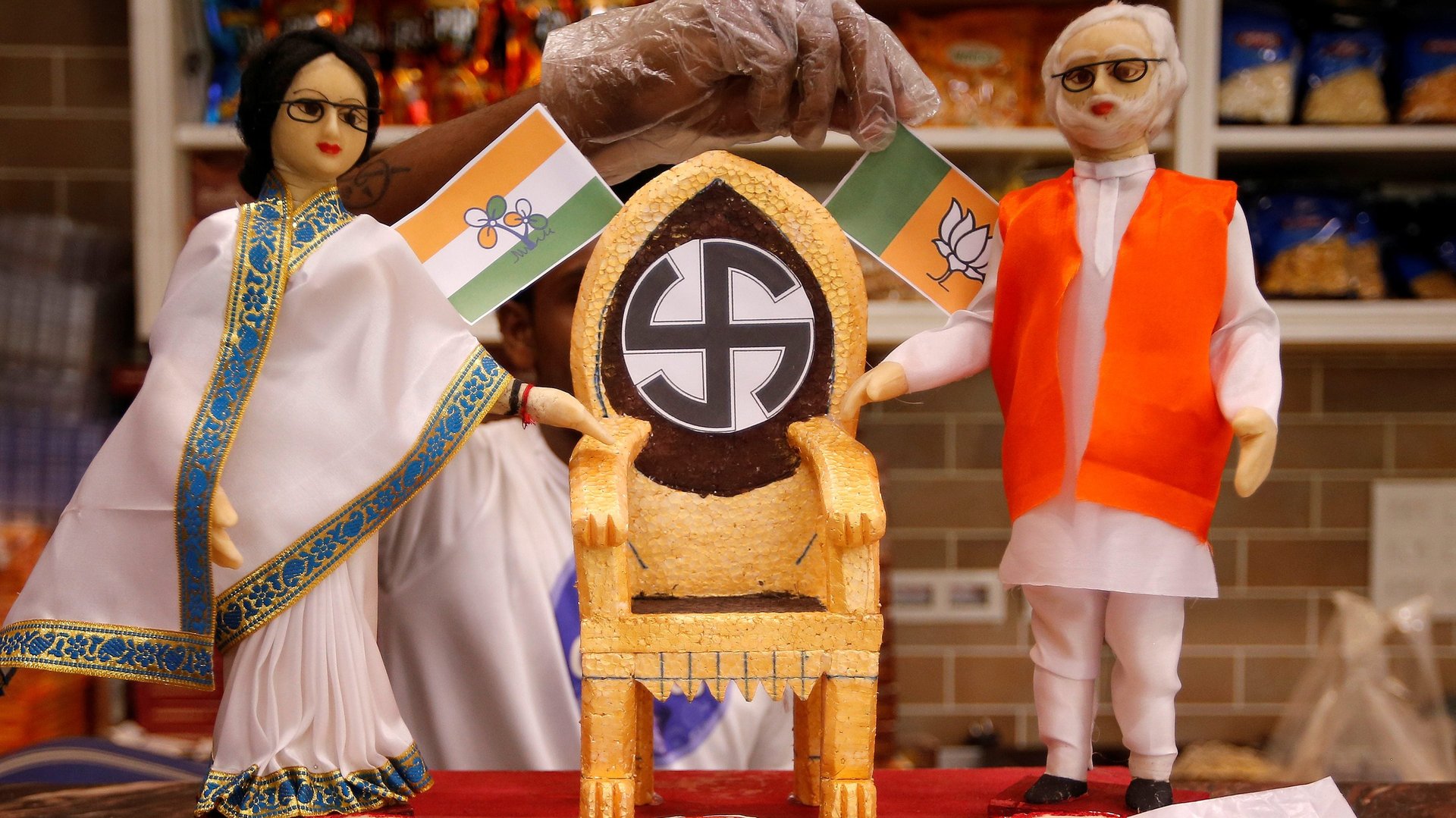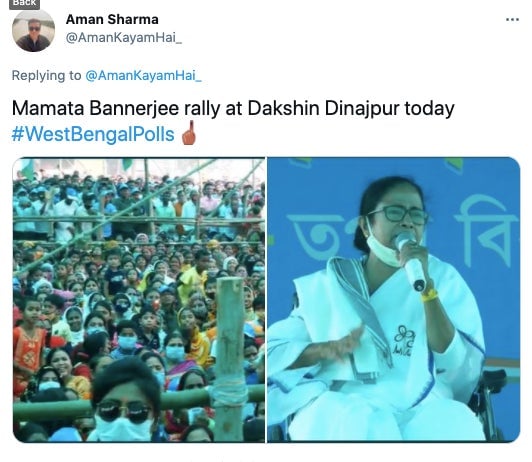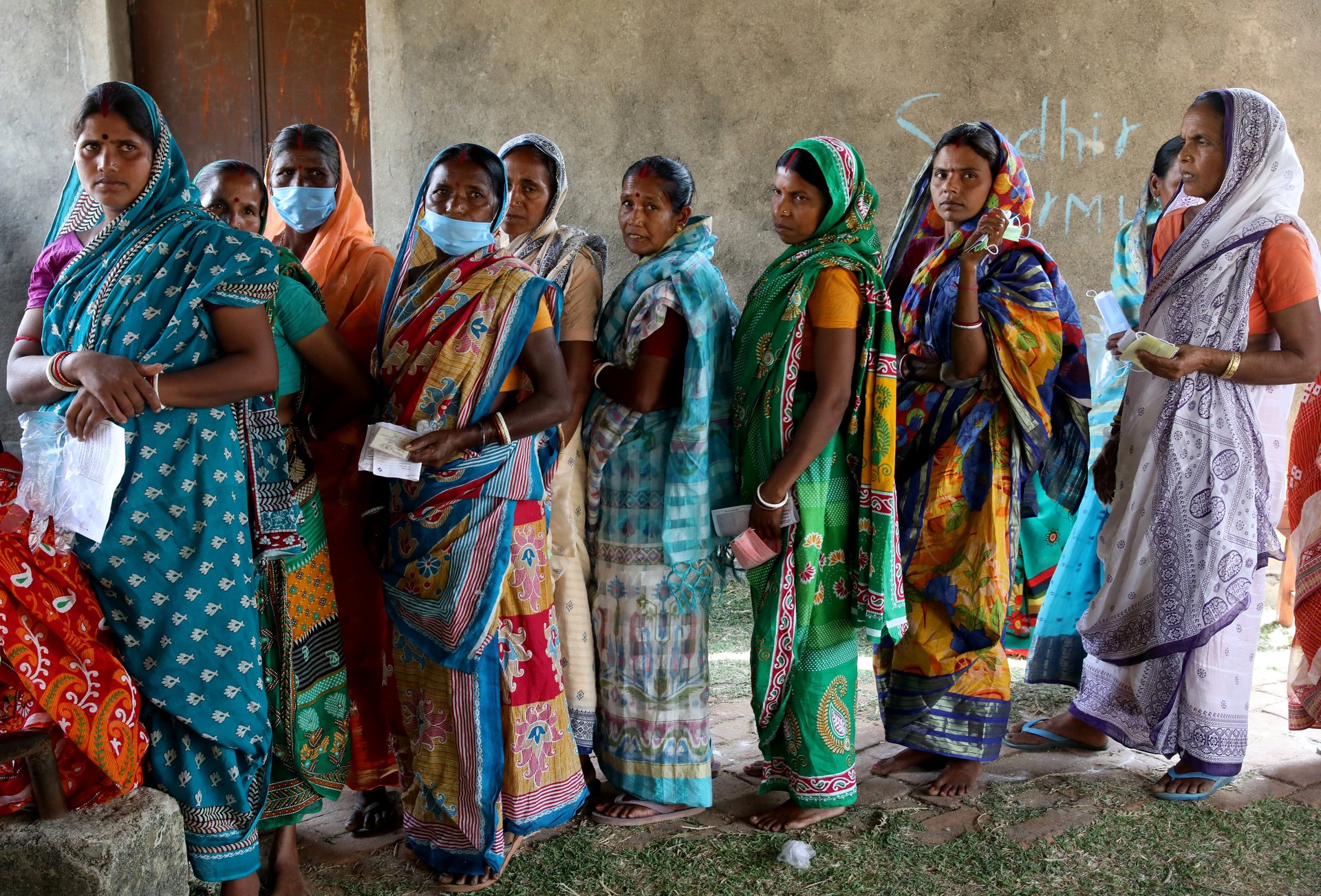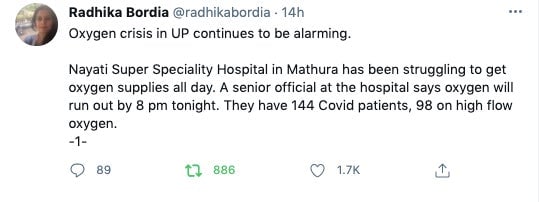The world’s largest democracy won’t stop its various elections—even if lives are at stake
Even as a brutal second wave of Covid-19 spreads death and despair through the length and breadth of India, it’s business as usual for the country’s democracy—the largest in the world.


Even as a brutal second wave of Covid-19 spreads death and despair through the length and breadth of India, it’s business as usual for the country’s democracy—the largest in the world.
Voting and preparations for elections are continuing in several parts of India even as the number of Covid-19 cases in the country break world records, and citizens struggle to find basic healthcare support. On April 26, India clocked 323,144 new Covid-19 cases, which was the sixth consecutive day of more than 300,000 cases in the country.
While the massive election rallies in West Bengal earlier this month were widely criticised, the western state is not the only one conducting polls in the middle of a historic pandemic. India’s largest state, Uttar Pradesh, is also currently holding assembly elections, and campaigning in the state is in full swing—though at a smaller scale than West Bengal.
The super-spreader West Bengal elections
On April 17, the day when India reported 261,394 new cases of Covid-19, prime minister Narendra Modi was in Asansol in West Bengal hosting a rally that was attended by a massive crowd. Delivering a speech without a mask, Modi bragged about feeling “elated” to see the large gathering.
Modi’s boasting did not stop at the speech, he also posted of his “success” on Twitter.
Modi was certainly not the only one gathering huge crowds in the state. Other political leaders including Congress’ Adhir Ranjan Chowdhury and chief minister Mamata Banerjee also held political rallies that put thousands at risk.

While the rallies continued, Indian social media had started seeing a flood of SOS requests for medicines and plasma donors from the friends and family of those affected with Covid. On April 18, when Congress party leader Rahul Gandhi announced he would not hold any more public gatherings in West Bengal, he was mocked for accepting defeat.
After severe backlash from citizens, the Election Commission of India, on April 22, announced that political rallies in West Bengal will need to be limited to 500 people, a huge crowd given the circumstances.
While most political leaders are now addressing rallies virtually, not much has changed on the ground as social distancing norms continue to get flouted.
The Election Commission’s order and response from politicians were clearly too little too late as recent reports have said that one in every two people being tested in the state’s capital Kolkata is Covid positive.
As of April 26, the total number of cases in Bengal has reached 94,949 with 11,009 deaths, as per the health ministry data. At present, the state is reporting the highest spike in coronavirus cases in the country.
Meanwhile, these statistics aren’t discouraging Indian voters from exercise their democratic right to vote. On April 26, in Bengal’s seventh phase of voting, over 8.6 million voters stepped out to vote. Images show that all Covid protocols were flouted in the process.


The final phase of the Bengal polls will end on April 29, and then, elections will continue in other states.
It’s time for Uttar Pradesh?
Even as social media timelines flood with images of cremation grounds running out of space in the northern state of Uttar Pradesh, political campaigners in the region are busy walking the streets with drums and banners ahead of assembly polls.
The assembly poll, which is scheduled to be completed by May 25, has already started to prove fatal. On April 24, as many as six people who were on election duty in Uttar Pradesh reportedly died. Besides, four others on poll duty took ill and died of “fever” while getting treated, as per a report in The Times of India.
Along with this, in the last two weeks around 1,900 police personnel have tested positive, with authorities claiming that a majority of them were on poll duty within the state.
Officially, on April 26, Uttar Pradesh saw 33,574 fresh cases. But these figures are being contested by several experts and journalists who say the situation on the ground does not match the data and believe that the state is trying to suppress information.
Meanwhile, on April 25, Uttar Pradesh chief minister Yogi Adityanath threatened to seize the property of those who spread “rumours” about oxygen shortage in the state as he asserted that the situation is under control.

Several political local leaders have appealed to the state election commission to postpone the polls as the event could be “super spreader.” Teachers from the state-run schools are also voicing out their opposition to the elections on social media, but the commission has so far dismissed such pleas claiming that if protocols are followed polls can be held smoothly.

But in a state that has a population of 240 million people, conducting a Covid-proof election can be nearly impossible. In the first phase of assembly polls itself around 30 million people stepped out to vote, and all the norms laid down by the election commission were flouted.

Despite the uproar in Uttar Pradesh, the process of assembly elections has started in Bihar.
On April 24, amid the Covid-19 scare, the election commission completed training of its electoral officials to conduct elections in the state.
